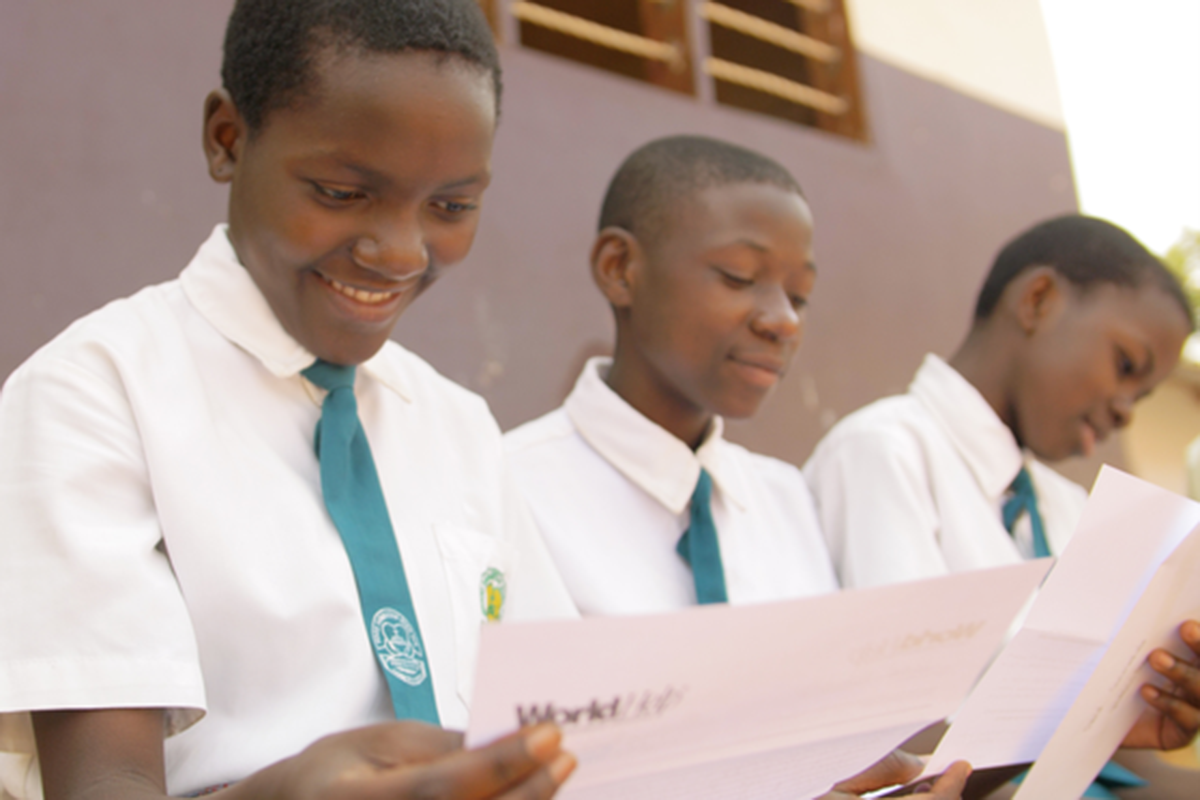Correspondence is one of the most exciting parts of any sponsorship journey.
Not only do you get to directly communicate with someone you’re impacting financially, but you also get the chance to build a personal relationship.
I sat down with World Help’s director of international partnerships, Kraig Cole, to learn more about what letter writing means for sponsored children and some of the common questions he’s received about the correspondence process.
Whether or not you’re a new sponsor, knowing what to expect from your child’s letters — and what not to expect — will help you get the most out of your relationship.

Your sponsored child will cherish every letter or email you send
Expect some letters to be short or impersonal
The length of your child’s letter does not reflect how they feel about you or how thankful they are for your sponsorship.
The simple fact is this: most children are not eloquent communicators.
Your child may not feel confident with a pencil and paper, or they may not know what to say. Many of our programs partner with schools that incorporate writing to sponsors into their classroom curriculum.
In other programs, there’s a gap between the moment your child receives your letter and the moment he writes you back. Your letter may be hanging up in their room or stowed away in a safe place, but by the time your child is prompted to write back, they might not remember the specific questions you asked in your last letter.

Just imagine the smile on your sponsored child’s face when your note arrives!
Expect children to be children
No matter where they live or where they grew up, children are still children.
They’re joyful, silly, honest, mischievous, stubborn … and sponsored children are no different.
Just like other children, there may be times your child would rather be playing than writing a letter.
Your sponsored child is so thankful for the opportunities you’re giving them, but writing to thank you might be difficult.

Writing to your sponsored child is a simple way to grow your relationship with them
Expect some things to be lost in translation
If your child doesn’t speak English, some of the nuance and meaning of their letters may inevitably be lost in translation.
In some programs, children learn English in school and can write their sponsors without a translator. For other programs — especially in Central America or Eastern Europe — it’s uncommon for sponsored children to know any English.
While sponsorship is not intended to be a pen pal relationship, some children have a better grasp of English than others. If you’re interested in sponsoring a child with stronger English, our team would be happy to help. Just contact our team and ask!

It’s always exciting to see what your sponsored child may write back to you!
Expect your child to cherish your letters
Whether or not your child can articulate it, your correspondence makes a huge difference in their life.
“Everybody who goes to visit our programs always comments on how they see letters being cherished by the kids. Don’t be discouraged if your child doesn’t write back in the way you expect … the most rewarding thing is being confident that you’re making an eternal impact in that child’s life,” Kraig said. “Definitely keep writing, because letters matter.”
You may never fully know the full impact your words are making.
But you can be confident that your love, support, and prayers demonstrated through your letters are making a positive impact on your child’s life!
Ready to write a letter right now? Mail it to:
[Sponsored Child’s name and ID #]
c/o World Help Child Sponsorship Program
P.O. Box 501
Forest, VA 24551
If you’d prefer to send an email to your sponsored child, that’s also an option. No matter what form your letter comes in, the most important thing is that it comes from you!
Not a sponsor yet? Start your sponsorship journey today to help a child in need and cultivate a relationship with them!




